Israeli Generals: Are They Pioneers of Leftism in the Military?
Despite the difference in political views, no one will dispute the uniqueness of the State of Israel, whether it is the history of its creation or the successes in the development of the country. Israel always chooses its own individual path. Also in matters of domestic policy.
How is it that in Israel, army generals hold leftist views, and the singer of popular songs and the Minister of Finance – the extreme right?
Uniqueness
In the intricate tapestry of Israel’s social and political landscape, the Israel Defense Forces (IDF) loom large, wielding far more than just military might. Former Israeli generals have ascended beyond their military careers, emerging as prominent figures in the realms of politics and business. This transition from the hierarchy of defense to influential societal roles hinges on the profound confidence placed in the services by the public, with 93% of Israelis ranking the trustworthiness of the IDF above other national institutions. The prevalence of universal military conscription reflects the military’s intertwining with Israeli households, ensuring that security concerns are a continual backdrop to civic life. Moreover, societal demands for decreased military expenditures have prompted the IDF to delve into economic ventures, notably through lucrative land sales, fundamentally intertwining military influence with fiscal domains.
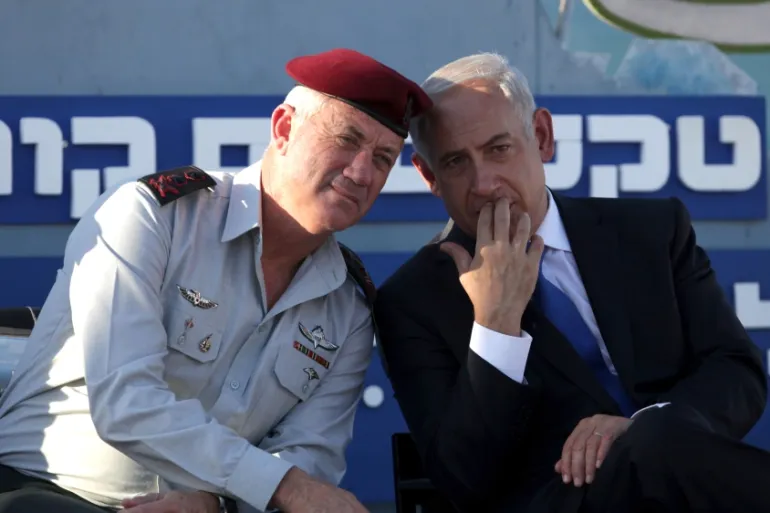
The Leftist Label and Israeli Generals
In the socio-political fabric of Israel, the role of Israeli generals often transcends the military arena, influencing the tides of political thought and action. Their perspectives, shaped by the rigors of command and the reality of conflict, have led to a nuanced stance on various national issues, earning them a reputation for leaning towards left-wing ideologies, especially in matters of security and governance.
- Generals’ Perspective on the Israeli-Palestinian Conflict:
- Israeli generals are frequently seen as harboring more left-wing views, especially regarding the perennial Israeli-Palestinian conflict. Their extensive experience in military operations has instilled in them an understanding of the complex nature of such political quandaries, acknowledging that military might alone cannot forge lasting peace.
- Contrary to some political leaders who advocate for continued military dominance until an unequivocal Palestinian capitulation, these security officials maintain that a political resolution is indispensable for enduring stability. They view the occupation of the West Bank as an issue that necessitates a political resolution, not merely a military one, to secure a sustainable future for both Israelis and Palestinians.
- Views on Judicial Reforms:
- The proposed judicial overhaul by the government has raised alarms among high-ranking IDF and security officials. They perceive such reforms as a potential threat to the pillars of Israeli society and democracy.
- The independence of the judiciary is seen as vital, not only for domestic reasons but also for maintaining international cooperation. It serves as a safeguard for IDF commanders and soldiers, protecting them from possible international legal repercussions.
- Importance of Societal Cohesion and National Identity:
- Israeli generals and security officials emphasize the significance of societal cohesion and a shared national identity in preserving the nation’s security. This belief underscores the importance they place on the IDF’s compulsory draft system, which relies on a united and motivated populace.
- The controversy surrounding the judicial overhaul, perceived by many to undermine these foundational values, has sparked significant concern among the security echelons. They argue that such measures could erode the social fabric that is essential for the IDF’s effectiveness and the country’s overall security.
Incorporating the experiences and insights of Israeli, challenge the more traditional military doctrines and offer a broader perspective that includes political, judicial, and societal considerations. As the IDF continues to play a pivotal role in the lives of Israeli citizens, the influence of these generals within the spheres of policy and public opinion remains a focal point of interest and debate.
- Political Spectrum in Israeli Society:
- The Left-Right political continuum in Israel is predominantly influenced by positions on the Arab-Israeli conflict. In this context, the right wing prioritizes security measures and the maintenance of Jewish settlements in the West Bank, while the left wing is more inclined towards peace negotiations and territorial compromises.
- The IDF, as an institution, remains non-partisan, focusing on national defense and security, yet individual members, including high-ranking officers, may hold personal political beliefs that can influence their post-military careers and the political landscape.

But even taking into account the difference in views, the whole country is united in its attitude to what is happening today – the war with Hamas.
“It’s hard to believe that Churchill or Roosevelt thought they could control Hitler. It is impossible to control your enemies. Either we let them destroy our country, or we will defeat them. And to be clear: Israel is not at war with the Palestinian people in the Gaza Strip. Our war with Hamas. No one wants to kill an innocent civilian, an innocent woman, an innocent child – but if there is to be a war, there will be casualties”.
We also recommend reading:
The “Tail wags the dog” principle: How it works in politics, The tomb of General Qassem Suleimani, A “leak” from a military meeting, AGs fed up with NYT, CNN Hamas coverage, Initial Lessons From the October 2023 War, International Loan Ended







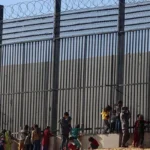

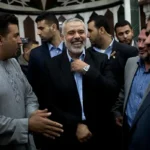
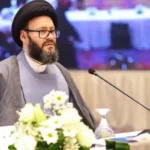
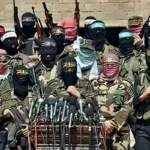



Leave a Reply